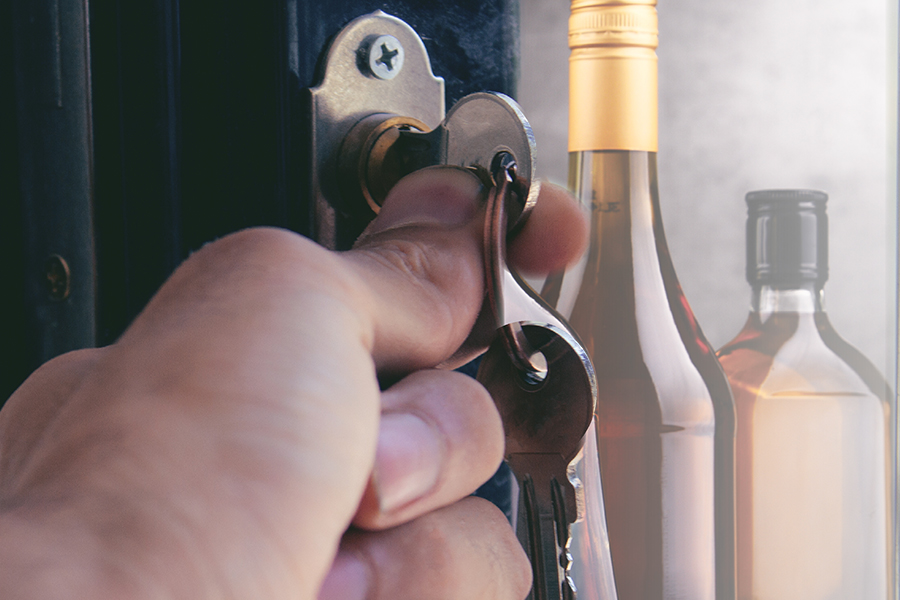Teenage Drinking: 12 Facts You Probably Didn’t Know

The teenage years are an amazing experience for teens and their parents. Every parent wants their child to grow into a confident adult. But it also can be scary for families when teens are exposed to difficult choices like underage drinking. A recent survey found that 30 percent of high school students have consumed alcohol over the past month.
Study after study shows that teens are drinking, whether their parents want to admit it or not. Experts are learning new information every day about the physical and mental effects of underage drinking and why teens should choose to stay sober.
Teen Drinking and Adult Alcohol Dependence
Teens live in the moment and often make decisions on a whim. However, kids who start drinking before their 15th birthdays are four times more likely to become alcoholics than people who choose to wait until age 21 to experience alcohol.
Younger Teens Get Drunker, Faster
On average, it takes an adult’s body about one hour to process the alcohol found in one standard drink. During that time, the alcohol is slowly being metabolized by the body. Being legally drunk means having a blood alcohol concentration (BAC) of 0.08 percent or higher. Following generally accepted guidelines, the average woman reaches the legal limit after consuming about two drinks in one hour. Men are legally drunk after about three drinks in an hour.
However, in younger teens, the body metabolizes alcohol more slowly. A recent study found that young teens who consumed three drinks over two hours reached the legal BAC limit or higher. Those who had five drinks within two hours had BAC’s two to three times the legal adult limit.
Teens are Not Trained Bartenders
A shot, or one serving of alcohol, is 1.5 ounces of 80-proof distilled spirits. However, give a bottle of booze and a plastic cup to a teen and ask them to make a mixed drink. The result will be one strong drink! Researchers tried this with college students and found that most poured in six to eight servings of alcohol or more!
So, while a teen thinks they’re having “just one” drink, they could be consuming a dangerous amount of alcohol in a very short amount of time.
Teens are Binge Drinkers
Adults like to savor a glass of wine or enjoy the newest craft beer selection from a local brewery. Many teens have something completely different in mind when they drink. Shots, drinking games, beer bongs; when teens drink, they’re more likely to be binge drinking.
Binge drinking is defined as consuming four or more drinks in one two-hour sitting for a woman and five or more drinks for men during the same time period. Because most teens tend to drink a lot of alcohol in a short amount of time, more than 90 percent of that alcohol is consumed during periods of binge drinking.
Thanks to national campaigns warning about the dangers of underage drinking, the rate of teenage binge drinking has been on the decline in recent years. However, we have not seen the same decrease in extreme binge drinking.
Teens Are Participating in Extreme Binge Drinking
Extreme binge drinking is throwing back 10 to 15 drinks or more in one sitting. This kind of alcohol consumption can lead to alcohol poisoning, hospitalization, coma and possibly death. Drinking a large amount of alcohol in a short period of time can lead to:
- Slow breathing
- Irregularities in heart rate
- Dangerous fluctuations in body temperature
- Loss of consciousness
- Seizures
- Vomiting
Someone who has consumed a dangerous amount of alcohol may have some or all these symptoms and needs immediate emergency medical attention.
Teenage Brains React Differently to Alcohol Than Adult Brains
Teenage bodies may seem grown up on the outside, but their brains are not. Human brains are not fully developed until around age 25. So, when a teen drinks, the alcohol has a greater effect on their developing brain, which can be permanent. Once a teen sobers up, alcohol continues to slow down brain activity for up to two weeks; far longer than in an adult brain.
Other effects of alcohol on the teenage brain:
- Disrupts the brain’s ability to make and store memories
- Impacts areas of the brain that control judgment, which can lead to dumb decisions and risky sexual behavior
- Increases a teen’s risk for depression, anxiety, and other mental health problems
Serious Drinking Can Lead to Serious Physical Health Problems
The long-lasting effects of heavy drinking during the teenage years can affect the entire body and cause serious health problems later in life. One study found a higher risk for obesity, heart disease, stroke, and memory problems in adults who engaged in regular binge drinking as teens.
Long-term physical effects of alcohol abuse:
- Weakens heart muscle — affects the ability to pump enough blood to organs
- Weaker bones — more likely to suffer fractures, longer healing time
- Irritates digestive system — can cause vomiting, diarrhea, and stomach pain
- Destroys liver — causes inflammation, scarring, and disease
Alcohol Kills 5,000 Teens Each Year
Even though it is illegal for anyone under the age of 21 to drink alcohol, 5,000 teenagers die every year as a result of underage drinking:
- 1,900 deaths from motor vehicle crashes
- 1,600 deaths by homicide
- 300 deaths by suicide
- Hundreds of deaths caused by injuries from falls, drownings, and burns
Social Media Elevates Peer Pressure
Peer pressure is not new. But just because we’re aware of it doesn’t mean it’s not affecting teens today, especially in the age of social media. Look no further than a teen’s outstretched hand, and their cellphone, to find their greatest source of peer pressure. All those posts on social media can make drinking seem glamorous or cool.
Teens Drink Because They’re Bored
Many teens admit they started experimenting with alcohol because they didn’t really have anything better on the agenda. Yes, teens have school and homework, but what other activities or responsibilities does your teen have? Do they have a part-time job or have extra responsibilities at home such as picking up a younger sibling from school?
Teens can also take up a new hobby, join a sports team, or find a local volunteer opportunity to stay busy. Activities help teens make new friends, get valuable leadership experience opportunities that will look great on college applications, and have some fun.
Warning Signs of Teen Alcohol Misuse
Stumbling home drunk after curfew may not be the only sign your teen is using alcohol. Any changes in your child’s behavior can signal the need for parents to take action.
Recognize the warning signs of underage drinking:
- Mood swings — bouts of anger, defensiveness, or depression
- Poor concentration — falling grades, difficulty remembering things, uninterested
- Problems with friends — cutting ties with old friends or making new friends you don’t know
- Resisting authority — breaking family rules
Parents Can Prevent Underage Drinking by Talking to Their Kids
It may feel like our words fall on deaf ears, but kids are listening. Get to know who your kids are hanging out with and where they’re spending free time. One of the best ways parents can prevent underage drinking is by talking to their kids. Start by learning the facts from experts. When you can back up your statements with facts, kids are more likely to listen.
Find simple opportunities to discuss underage drinking while you’re driving carpool, on the way home from a friend’s house, or out running errands. It doesn’t have to be a big deal. While teens may try to act grown up, many are looking for parents to be the adult in the room and to set clear guidelines about underage drinking. The teenage years are a time when kids are growing and exerting their independence. Do your part to help them grow into adults you’ll both be proud of.




